 Understanding Nouns in French
Understanding Nouns in French
Explore the concept of nouns in French language including its usage, types and examples.

Attendre
The French word 'Attendre' is used to express the action of waiting. It is a verb and can be used in various contexts just like the English equivalent. For example, 'J'attends mon ami' means 'I wait for my friend'. It can also be used in the imperative form like 'Attends!' which means 'Wait!'.
Example sentences with Attendre →
Base-ball
The word 'Baseball' translates as 'Base-ball' in French. It is used exactly as in English to represent the popular sport. However, note that the French write it with a hyphen in between.
Example sentences with Base-ball →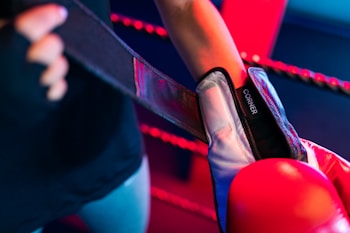
Boxe
The French word 'Boxe' is used exactly in the same way as 'Boxing' in English. It refers to the sport which two people fight by hitting each other with their fists. It's worth noting that this French term is understood the same way in all French-speaking regions.
Example sentences with Boxe →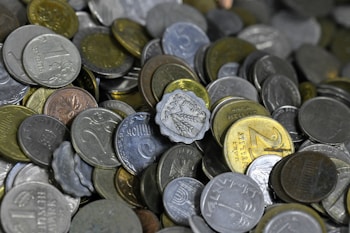
Changé
The French word 'Changé' corresponds to the English term 'change'. It is quintessential to understand that it is often used in the context of physical or emotional transformation, alternation, or evolution. For instance, 'J'ai changé de maison' would imply 'I changed my house'. However, the context of usage may vary, and it's crucial to identify the conjugation form and the grammar structure associated with the sentence.
Example sentences with Changé →
Cyclisme
The word 'Cyclisme' in French means 'Cycling' in English. It is used in the context of riding a bicycle for sport, transportation, or leisure. Besides, like English, it is also used in the phrase 'faire du cyclisme' for expressing 'to do cycling'.
Example sentences with Cyclisme →
Football
The French word 'Football' is used exactly as in English, to refer to the sport which involves two teams trying to score points by hitting a ball into the opponents' goal using any body part except their hands and arms. In some contexts, it might also refer to the ball used in this sport.
Example sentences with Football →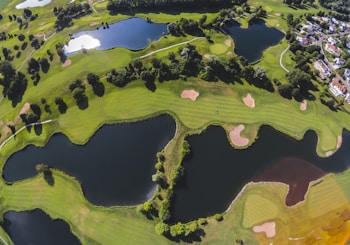
Golf
The word 'Golf' is the same in both French and English. It is used in reference to the sport where players use various clubs to hit balls into a series of holes on a course in as few strokes as possible.
Example sentences with Golf →
Gymnastique
The French word for 'Gymnastics' is 'Gymnastique'. It is used in the same way as English, referring to a sport involving the performance of exercises requiring strength, flexibility, balance, and control. It can be used in various contexts, whether referring to the activity as a whole, specific techniques or movements, or the place where such activities are performed.
Example sentences with Gymnastique →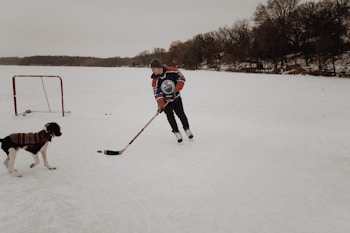
Hockey
In French, the word 'Hockey' remains the same as in English. It is used in the same context, referring to the popular sport played on ice, field or street.
Example sentences with Hockey →
La famille
The French word 'La famille' is used to signify a group of individuals who share a legal or genetic bond, similar to 'The family' in English. It is often used in sentences such as 'J'aime ma famille' (I love my family) or 'C'est ma famille' (This is my family). Remember, like all French nouns, 'famille' has a gender, in this case, it is feminine (la famille), not masculine.
Example sentences with La famille →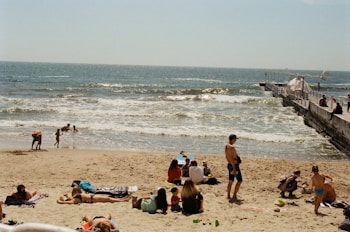
La grand-mère
In French, 'la grand-mère' refers to the mother of one's mother or father. It is a feminine noun, so you use 'la' (the) instead of 'le'. This word is quite straightforward to use. Simply replace 'the grandmother' with 'la grand-mère' in a sentence.
Example sentences with La grand-mère →
La sœur
In French, the word 'La sœur' is used to represent the term 'the sister'. Just as in English, it can be utilized to refer to a sibling who is a female. The word 'la' is a definite article similar to 'the' in English, and 'sœur' is the noun for sister. One would use this term when referring to their sister in conversation or writing.
Example sentences with La sœur →
Le cousin
In French, 'Le cousin' is used to refer to a male cousin. To refer to a female cousin, you would say 'La cousine'. Similar to English, 'Le cousin' can be used in multiple contexts. For example, when speaking about family, introducing someone, etc.
Example sentences with Le cousin →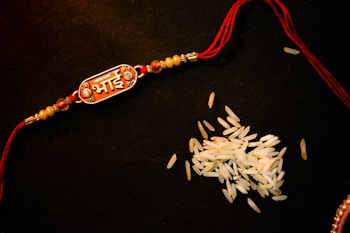
Le frère
In French, 'Le frère' is translated as 'The brother'. This word is used to refer to a male sibling. Unlike English, each noun in French has a gender, either masculine or feminine. 'Frère' is masculine so it's preceded by 'Le'.
Example sentences with Le frère →
Le grand-père
The term 'Le grand-père' is used in French to refer to one's grandfather. It is often used in familial contexts and can be abbreviated to 'papy' in informal French language. Like most French nouns, it has a gender, which is male in this case.
Example sentences with Le grand-père →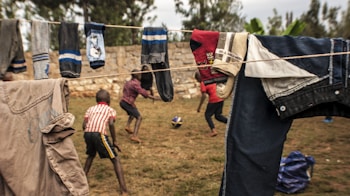
Les enfants
In French, 'Les enfants' is used to refer to 'The children'. 'Les' is a definite article used in plural form, and 'enfants' is the plural form of 'child' in French. This phrase is used in the same context as it is in English, to refer to more than one child.
Example sentences with Les enfants →
Les tantes et les oncles
In French, 'Les tantes et les oncles' refers to 'The aunts and uncles'. It's commonly used in the context where you would talk about your extended family in English. Notice that les is repeated before both nouns in the phrase, which is a standard practice in French when referring to more than one type of thing or person in a list.
Example sentences with Les tantes et les oncles →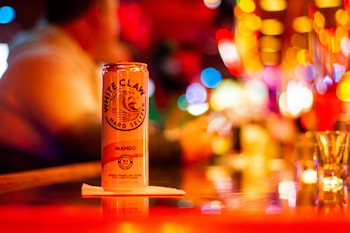
Mangue
The word 'mangue' is a feminine noun in French, used to refer to the tropical fruit known in English as a mango. It's used exactly as its English counterpart, in contexts of food, recipes, or just referring to the fruit itself.
Example sentences with Mangue →
Mec
The French word 'Mec' is used colloquially, similar to 'Dude' in English. It can be used to refer to a man or boy in a casual context. However, just like 'Dude', it should be used appropriately considering its informal and figurative nature.
Example sentences with Mec →
Météorologie
The French word 'Météorologie' means 'Meteorology' in English. It is used in the same contexts as in English, referring to the scientific study of the atmosphere that focuses on weather processes and forecasting.
Example sentences with Météorologie →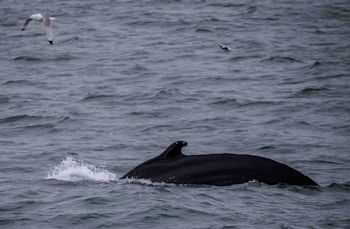
Océanographie
The term 'Océanographie' is used in French in the same way as 'Oceanography' is used in English, it refers to the study of the physical and biological aspects of the ocean. This field encompasses a wide range of topics including marine organisms and ecosystem dynamics, ocean currents and waves, plate tectonics and the geology of the sea floor, and fluxes of varied chemical substances and physical properties within the ocean and across its boundaries.
Example sentences with Océanographie →
Oncle/Tante
In French, the word for 'Uncle' is 'Oncle' and 'Aunt' is 'Tante'. These are used to address or refer to your parents' siblings, similar to English. Remember that French nouns have genders and these words are no exception; 'Oncle' is masculine and 'Tante' is feminine.
Example sentences with Oncle/Tante →
Prune
The word 'Prune' in French is used to refer to the fruit known as 'Plum' in English. It is used in the same way as it is in English, eaten as a fruit or used in dishes and desserts. For example, 'Je mange une prune' means 'I am eating a plum'.
Example sentences with Prune →
Rugby
Just like in English, we call 'Rugby' in French. It's both a game and a word in French. It's a direct borrowing from English, so there is no change in the spelling. It is used exactly as it would be in English. French people also commonly use this term to discuss about the popular sport 'Rugby'.
Example sentences with Rugby →
Tennis
The word 'Tennis' is used in the same way in both French and English, referring to the sport that involves a racket and a ball. It is a common word that can be used in various contexts, such as in conversations about sports, hobbies, or activities.
Example sentences with Tennis →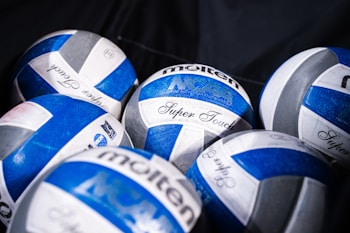
Volleyball
The word 'Volley-ball' in French is used exactly as 'volleyball' is used in English. It refers to a team sport where two teams, each consisting of six players, hit a ball across a net. The word is often used in the context of sports, physical education, and recreation.
Example sentences with Volleyball →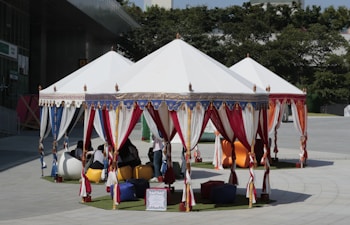
abri
The French word 'abri' is used to describe a place of refuge or protection, similar to the English word 'shelter'. It can refer to a physical structure, such as a building or a tent, or a more abstract concept, such as a safe haven or a place of security. The word is often used in the context of providing protection from the elements or from danger, and can be used as both a noun and a verb.
Example sentences with abri →
abus
The French word 'abus' is used to describe the misuse or improper treatment of something. It can refer to physical, emotional, or verbal abuse. It's important to note that 'abus' is a masculine noun, so any accompanying adjectives should be in the masculine form.
Example sentences with abus →
accentuation
The French word 'accentuation' can be used similarly to the English word 'emphasis' when talking about stress or importance placed on something, typically in the context of speech or writing. It can also effectively be used in music or art to highlight a particular feature or aspect.
Example sentences with accentuation →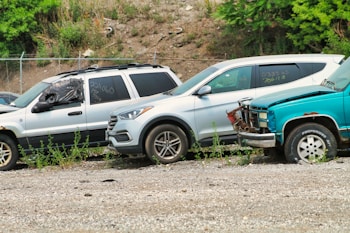
accident
The French word 'accident' is used similarly to the English word 'accident'. It refers to an unforeseen and unplanned event or circumstance. It can be used in a variety of contexts from car accidents (accident de voiture) to workplace accidents (accident de travail).
Example sentences with accident →